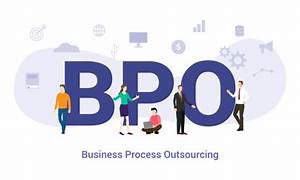Top 40 Flipkart BPO Interview Questions and Answers: With Interview Tips
If you’re aiming to land a job at Flipkart’s BPO (Business Process Outsourcing) division, you’re not alone. Flipkart, one of India’s leading e-commerce giants, offers exciting BPO roles that promise dynamic work culture, career growth, and the chance to work with a top-tier brand. But to get in, you’ll need to ace the interview.
Whether you’re a fresher or an experienced candidate, preparing for the interview can make all the difference. In this guide, we’ll walk you through 40 commonly asked Flipkart BPO interview questions, provide sample answers, and offer helpful interview tips to help you stand out from the crowd.
🔍 Understanding Flipkart BPO Roles
Before we dive into the questions, here’s a quick snapshot of what Flipkart looks for in BPO candidates:
- Good communication skills (English, Hindi, and/or regional languages)
- Customer service mindset
- Patience and problem-solving abilities
- Willingness to work in shifts
- Basic computer knowledge
Let’s begin with general, technical, and behavioral questions to get you fully prepared.
✅ Top 40 Flipkart BPO Interview Questions and Sample Answers
🔹 General Interview Questions
- Tell me about yourself.
Answer: “I’m a recent graduate in commerce with strong communication and interpersonal skills. I enjoy problem-solving and interacting with people, which is why I’m interested in a customer service role at Flipkart.” - Why do you want to work for Flipkart?
Answer: “Flipkart is one of India’s top companies known for innovation and excellent service. I admire how it puts customers first, and I’d love to be a part of a team that values quality and growth.” - What do you know about Flipkart?
Answer: “Flipkart is one of India’s largest e-commerce companies, founded in 2007. It offers products across categories like electronics, fashion, and home essentials. It’s now a part of Walmart.” - What is a BPO?
Answer: “BPO stands for Business Process Outsourcing. It involves contracting non-core business tasks—like customer support or back-office operations—to third parties.” - Are you comfortable working night shifts?
Answer: “Yes, I understand that the job may require flexibility, and I’m okay with night or rotational shifts.”
🔹 Customer Service–Focused Questions
- How would you handle an angry customer?
Answer: “I’d listen patiently, acknowledge their concern, stay calm, and try to solve the issue promptly. Empathy and clear communication are key.” - What does good customer service mean to you?
Answer: “It means meeting customer needs efficiently, making them feel heard, and going the extra mile to ensure satisfaction.” - How would you deal with a difficult caller?
Answer: “I’d remain polite and professional. I’d try to de-escalate the situation, listen actively, and offer solutions without losing my composure.” - How do you handle stress or pressure?
Answer: “I stay focused on the task and try to break down big problems into smaller steps. Breathing exercises and short breaks help too.” - Give an example of when you turned a negative customer experience into a positive one.
Answer: “At my previous job, a customer received a wrong item. I apologized, arranged a replacement quickly, and followed up until the issue was resolved. They later left a positive review.”
🔹 Behavioral and HR Questions
- What are your strengths?
Answer: “I’m a good listener, quick learner, and always remain calm in difficult situations.” - What are your weaknesses?
Answer: “Sometimes I overthink decisions, but I’ve been working on improving my confidence and time management.” - Where do you see yourself in 5 years?
Answer: “I’d like to grow within the company, take on more responsibility, and move into a supervisory role.” - How do you prioritize tasks?
Answer: “I make a to-do list, assess urgency and importance, and handle high-priority issues first.” - Describe a time you worked in a team.
Answer: “During college, I worked on a group project where I handled communication and organization. We divided tasks, supported each other, and delivered ahead of the deadline.”
🔹 Voice Process–Specific Questions
- Are you comfortable working in a voice process?
Answer: “Yes. I have good verbal skills and enjoy speaking with people and solving their issues over the phone.” - How is voice support different from chat support?
Answer: “Voice support requires immediate responses, clear pronunciation, and listening skills, while chat support focuses more on written communication and multitasking.” - What would you do if a customer doesn’t understand what you’re saying?
Answer: “I’d slow down, use simpler words, and rephrase my explanation politely until they understand.” - Rate your English communication skills on a scale of 1 to 10.
Answer: “I’d rate myself 8, as I have strong grammar, fluency, and a neutral accent.” - How do you ensure clarity while talking on the phone?
Answer: “I speak slowly, avoid filler words, confirm details, and listen carefully to avoid misunderstandings.”
🔹 Scenario-Based Questions
- A customer wants a refund, but it’s against company policy. What do you do?
Answer: “I’d explain the policy calmly and suggest alternative solutions like replacement or store credit.” - You receive back-to-back calls without a break. How do you manage?
Answer: “I stay focused, manage my energy, and ask for a short break if needed. It’s important to stay consistent in tone and quality.” - If a customer starts yelling, how would you react?
Answer: “I’d stay calm, avoid reacting emotionally, and try to understand their concern. Once they cool down, I’d offer help.” - How would you handle a technical issue while on a call?
Answer: “I’d inform the customer politely, try to troubleshoot or escalate, and assure them I’m working to resolve the issue.” - What if you don’t know the answer to a customer’s question?
Answer: “I’d let them know I’ll check with the concerned department and get back to them shortly with accurate information.”
🔹 Technical & Operational Questions
- Are you familiar with any CRM tools?
Answer: “I’ve used basic CRM tools like Zoho and Salesforce in training, and I’m open to learning new systems quickly.” - What is ticketing in customer support?
Answer: “It refers to creating a service request or complaint, which is tracked until the issue is resolved.” - What is average handling time (AHT)?
Answer: “It’s the average duration a customer service agent spends handling a call or ticket, including talk and wrap-up time.” - What’s the importance of First Call Resolution (FCR)?
Answer: “FCR shows how effectively issues are resolved in the first call, which boosts customer satisfaction and reduces repeat calls.” - How would you handle a sudden software failure during a call?
Answer: “I’d inform the customer, note down their concern manually, and report the issue to the tech team while following backup procedures.”
🔹 Flipkart-Specific Questions
- How would you explain Flipkart Plus to a new customer?
Answer: “Flipkart Plus is a loyalty program that rewards customers with free deliveries, early access to sales, and extra benefits.” - What steps would you take for a customer complaining about late delivery?
Answer: “I’d apologize, check the delivery status, explain the reason for delay, and escalate if needed. I’d reassure them the order will arrive soon.” - How do you handle product return requests?
Answer: “I’d verify the reason, check eligibility under the return policy, and assist in initiating the return process.” - How would you pitch a Flipkart product during a support call?
Answer: “If appropriate, I’d suggest related products or offers the customer might like, ensuring it adds value to their experience.” - How can BPO roles contribute to Flipkart’s success?
Answer: “By offering smooth customer experiences, solving problems efficiently, and building trust, BPO teams ensure customer loyalty and satisfaction.”
🔹 Personal and Final Round Questions
- Why should we hire you?
Answer: “I’m committed to delivering excellent service, quick to learn, and passionate about helping customers. I believe I’d be a great addition to the Flipkart team.” - Are you okay with rotational shifts and weekends?
Answer: “Yes, I understand customer service requires flexibility, and I’m fully prepared for rotational and weekend shifts.” - Do you have any questions for us?
Answer: “Yes—could you tell me more about the training period and growth opportunities at Flipkart BPO?” - How soon can you join?
Answer: “I’m available to join immediately (or after my notice period, if applicable).” - What is your salary expectation?
Answer: “I’m looking for a competitive salary aligned with industry standards and open to discussion based on the role and responsibilities.”
💡 Bonus: Flipkart BPO Interview Tips
- Be clear and confident: Practice speaking fluently and clearly. Record yourself to improve pronunciation and pacing.
- Do your homework: Know Flipkart’s business, culture, and recent news.
- Dress appropriately: Even for virtual interviews, look presentable.
- Stay positive: Show enthusiasm for the job and the company.
- Be honest: If you don’t know something, admit it and express a willingness to learn.
- Mock interviews: Practice with friends or online resources to get comfortable with typical questions.
🎯 Final Thoughts
Getting a job at Flipkart BPO is all about being prepared, confident, and customer-focused. By practicing these questions, improving your communication, and staying updated on Flipkart’s services, you’re giving yourself the best shot at success.
Whether you’re just starting out or switching careers, Flipkart BPO offers a fantastic platform to grow your skills and make an impact in the world of customer service. So go in with a smile, stay calm, and give it your best. You’ve got this!


